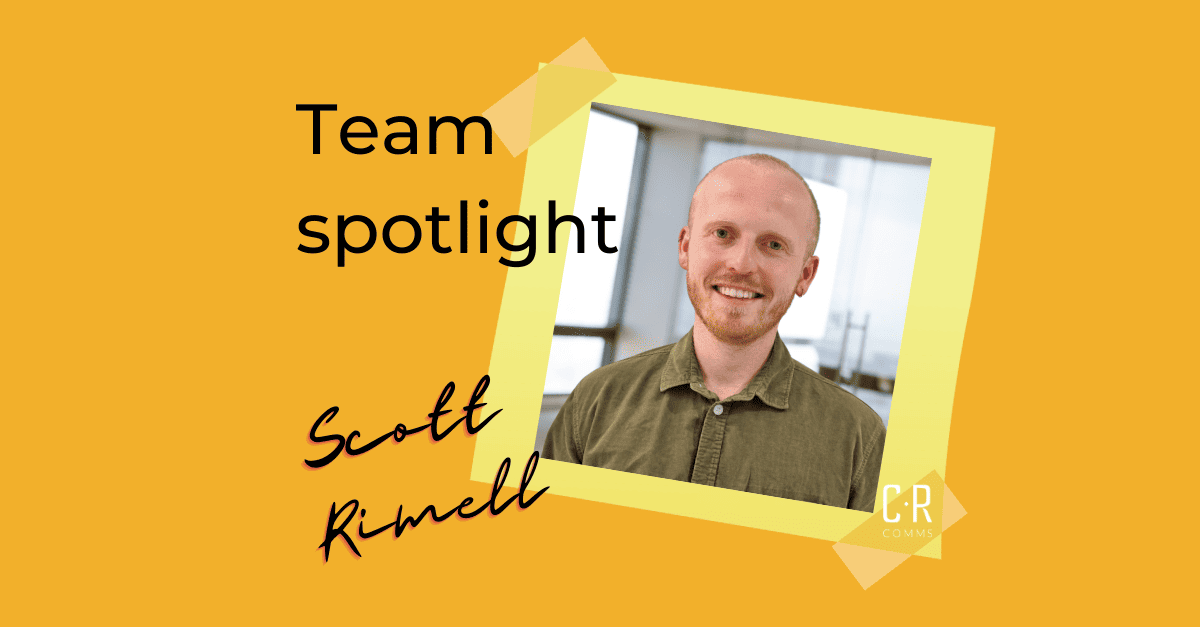Newsjacking 101: A beginner’s guide to reactive PR

In the fast-paced world of PR and comms, building your brand, staying relevant and engaging with your audience requires getting your messaging out there consistently and prominently.
There are tons of great tactics to get your brand in the media like commissioning your own research, submitting thought leadership articles, and sharing your own company announcements (when it is genuinely newsworthy!). But these activities all take time to execute and see the rewards.
For quick, high-profile, and impactful coverage, one tactic reigns supreme. Enter reactive PR, often referred to as ‘newsjacking’, a strategic approach to media relations that leverages current affairs and breaking news to amplify your brand’s messaging.
What is newsjacking?
Newsjacking in PR is the practice of issuing comments on breaking news stories.
It can be a great way to secure coverage for your business. For one, journalists are already writing about these events, and often looking for experts to offer their insights into what their stories mean for a particular audience. It is also an ideal way of aligning your brand with particular issues, whether that is the state of the economy, government policy or environmental crises.
However, while it’s undoubtedly effective, getting strong results with reactive PR is no cakewalk. Competition is tough, and only the most insightful, timely comments make the cut when journalists write up their articles.
For beginners just dipping their toes into the waters of reactive commentary, here are a few tips to improve your chances of success…
- Select the right opportunities
Firstly, not every news story will be the right fit for newsjacking. Forcing connections between your brand and major news stories can feel disingenuous, and hammering a square peg into a round hole is something both journalists and your audience will see right through.
So, it’s important to choose events that are relevant and authentic to your brand or message and where your commentary can genuinely add value. Looking for stories that are well aligned with your brand’s values and expertise, therefore, is a must.
With that in mind, be aware of the sensitivity of certain topics when considering whether to weigh into the conversation. After all, showing integrity is as important to brand reputation as it is to our personal values, and that means respecting the gravity of sensitive events and avoiding exploiting them for promotional purposes.
- Language is power
Giving a creative flair to your comments is key, as your brand’s voice and tone will need to be distinct and powerful to get a journalist’s attention. As noted, journalists will receive dozens – hundreds, perhaps – of comments from brands offering their two pence when a major story breaks; a bland quote from your CEO will quickly be discarded in favour of a competitor who has a clear point to make and makes it well.
Punchy, impactful language goes a long way in crafting a memorable comment that drives home your brand’s message – so long as the overall tone remains consistent with the position of your brand. As an example, when data comes out showing that food prices are still rising, rather than saying “this is bad news for consumers”, consider something like “this is yet another gut punch for shoppers everywhere”.
- Say something important
If you say what everyone else is saying – or worse, speak for the sake of speaking – few will listen.
Think about what you have to say that offers a unique perspective or insight into the situation and strive to add real value to your audience through your commentary. This can mean offering expert analysis into the issue, practical advice, or innovative solutions related to the news event.
To ensure a brand has a clear angle to approach a news story from, it’s important that a comms team (or agency) has a strategy in place. You must know ahead of time where you – as an organisation and the people within it – stand on important issues. That way, when a major story breaks, you already know what message you want to push out; you just need to craft it to the specifics of that particular event.
- Timing is key
The best-crafted, most insightful comment ever written will still fail to produce results if the timing isn’t right.
Following a major news event, journalists will scramble to cover the story, and your commentary needs to be on hand to make the cut.
So, while you want to ensure you’ve got all the facts straight before weighing in ensure your brand’s insight is thoughtful and well-supported, being quick off the mark is crucial.
At CRC, we will often write reactive PR comments ahead of time – for instance, when we know the Bank of England is meeting to vote on interest rates but it is unclear what the outcome will be, we will create one comment for each outcome (rise, fall, hold), ensuring we can distribute our clients’ comments the minute the Bank announces its decision.
It might be called reactive PR, but proactivity and timing is everything.
- Monitor and adapt
With that, keeping your finger on the pulse at all times is a must if you want to seize the best reactive opportunities.
Continuously monitoring news trends in your industry and keeping an eye on important upcoming events will help you build a strong long-term newsjacking strategy and establish your brand as a go-to authority in your sector. Top tip: create a calendar of upcoming events (government announcements, awareness days, data and report publications) so you are ready to jump on the stories that are likely to dominate any given day or week.
It’s time to get started
Ultimately, great newsjacking and reactive commentary comes down to this: say something punchy, insightful, and valuable, and say it quick – so, keep your eyes peeled for that next big opportunity.
Happy newsjacking!

Georgina McBride
Account Executive
About the author
Georgina joined the agency as a Communications Executive in September 2022, with clients spanning property, fintech and technology. Prior to this, she graduated with a degree in French at the University of Edinburgh, where she developed an interest in technology and communications while interning at a Parisian startup during her year abroad.
Email

